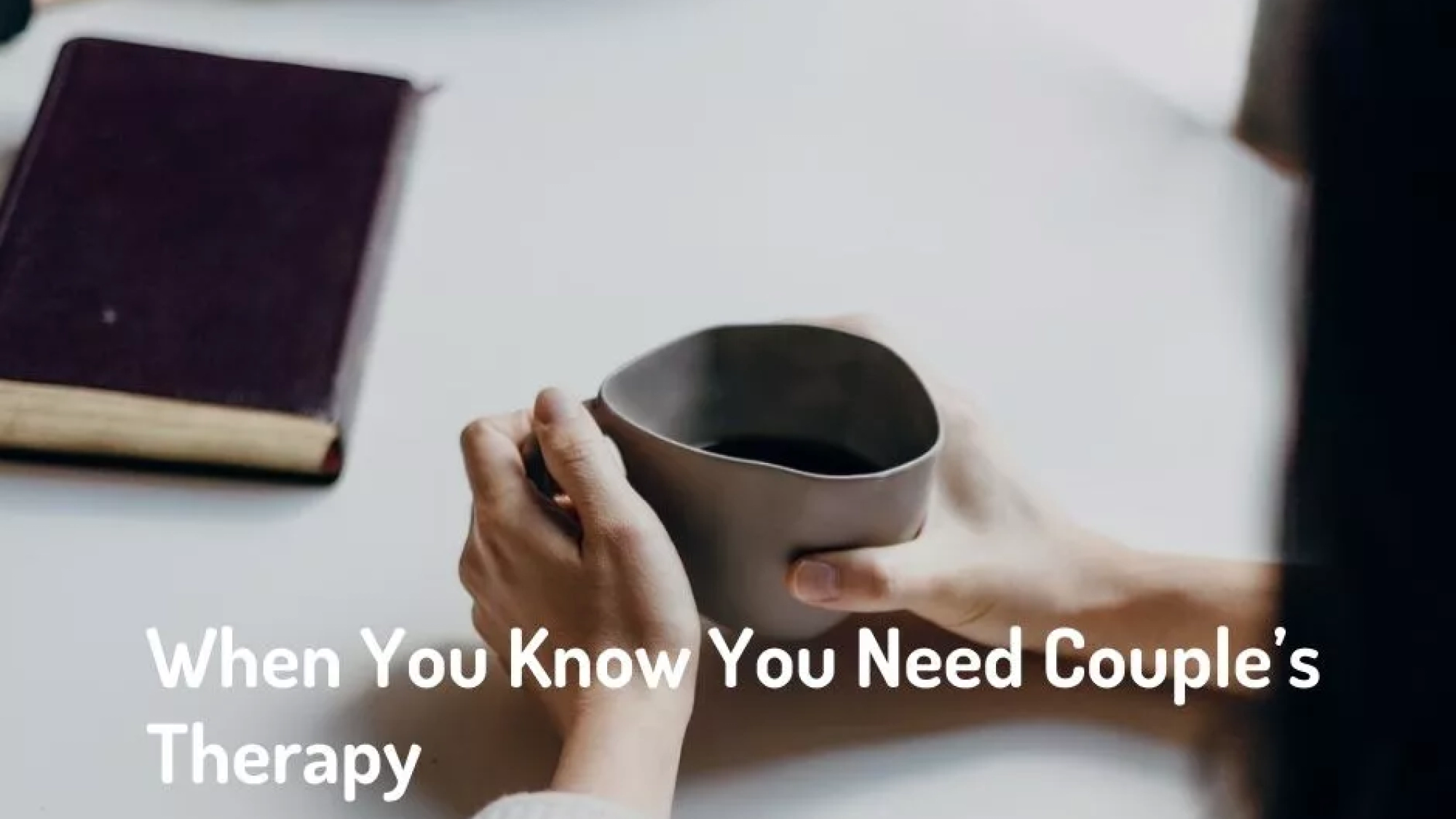Palm Beach Therapy Center – Boca Raton, FL
Relationships are complex, dynamic, and ever-evolving journeys shared between two individuals. While they often bring joy, love, and companionship, they can also encounter challenges, conflicts, and roadblocks along the way. Recognizing when your relationship could benefit from couple’s therapy is an important step towards fostering growth, healing, and deeper connection. In this blog, we’ll explore common signs indicating that couple’s therapy may be beneficial, dispel misconceptions surrounding therapy, and highlight the transformative power of seeking professional support.
Persistent Communication Breakdowns
Effective communication is the lifeblood of any healthy relationship. When communication breaks down, misunderstandings, resentment, and emotional distance can ensue. If you find yourselves stuck in repetitive patterns of miscommunication, frequent arguments, or difficulty expressing your needs and feelings constructively, couple’s therapy can provide a supportive environment for improving communication skills and rebuilding trust.
Recurring Conflicts and Unresolved Issues
Every relationship encounters conflicts and disagreements from time to time. However, when conflicts escalate, become frequent, or remain unresolved, they can erode the foundation of your relationship. Couple’s therapy offers a safe space to explore the underlying causes of conflicts, identify harmful communication patterns, and develop strategies for resolving disputes in a healthy and respectful manner.
Loss of Emotional Intimacy
Emotional intimacy is essential for fostering connection, trust, and vulnerability in a relationship. If you’ve noticed a decline in emotional closeness, affection, or shared experiences with your partner, it may be a sign that your relationship could benefit from professional support. Couple’s therapy can help you reconnect on a deeper level, rediscover the spark in your relationship, and cultivate a stronger bond built on empathy and understanding.
Impact of External Stressors
External stressors such as work pressures, financial struggles, or family conflicts can take a toll on your relationship. If external stressors are impacting your relationship dynamics, causing tension, or exacerbating existing issues, couple’s therapy can provide valuable tools and coping strategies for navigating these challenges together. A therapist can help you strengthen your resilience as a couple and develop a united front against external stressors.
Differing Expectations and Goals
Couples may encounter difficulties when their expectations, values, or goals diverge. Whether it’s differences in parenting styles, career aspirations, or future plans, navigating conflicting expectations can strain your relationship. Couple’s therapy offers a neutral space to explore and reconcile these differences, clarify mutual goals, and develop a shared vision for your future together.
Dispelling Misconceptions About Couple’s Therapy:
Despite its proven effectiveness in improving relationship satisfaction and communication, couple’s therapy is often met with misconceptions and stigma. Here are some common myths surrounding couple’s therapy:
- Therapy is Only for Couples in Crisis: Couple’s therapy is not solely reserved for couples on the brink of separation or divorce. It can benefit couples at any stage of their relationship, from newlyweds seeking premarital counseling to long-term partners looking to enhance their connection.
- Therapy Assigns Blame or Judgment: Contrary to popular belief, couple’s therapy is not about assigning blame or taking sides. Therapists provide a neutral, nonjudgmental space for couples to explore their feelings, perspectives, and experiences. The focus is on understanding each other’s needs, fostering empathy, and finding solutions together.
- Therapy is a Sign of Weakness: Seeking therapy is a courageous and proactive step towards strengthening your relationship and prioritizing your well-being. It takes strength and vulnerability to acknowledge areas of improvement and seek support from a trained professional.
- Therapy is a Last Resort: While some couples may seek therapy as a last resort, many others benefit from therapy as a preventive measure or proactive investment in their relationship. Therapy can provide valuable tools and insights for enhancing communication, resolving conflicts, and deepening connection, regardless of the severity of the issues.
The Transformative Power of Couple’s Therapy:
Couple’s therapy has the potential to transform relationships, empower couples, and foster lasting change. Through evidence-based interventions, empathetic support, and collaborative exploration, therapists help couples:
– Improve Communication: Learn effective communication skills, active listening techniques, and conflict resolution strategies.
– Rebuild Trust and Intimacy: Heal past wounds, rebuild trust, and cultivate emotional intimacy and vulnerability.
– Strengthen Resilience: Develop resilience as a couple, navigate challenges, and grow stronger together.
– Deepen Connection: Rediscover love, passion, and connection, and create a fulfilling and harmonious partnership.
In conclusion, recognizing when your relationship could benefit from couple’s therapy is a courageous and proactive step towards fostering growth, healing, and deeper connection. By addressing persistent communication breakdowns, recurring conflicts, loss of emotional intimacy, impact of external stressors, and differing expectations and goals, couple’s therapy offers a supportive environment for couples to navigate challenges and cultivate a thriving relationship. Dispelling misconceptions surrounding therapy and embracing its transformative power can empower couples to embark on a journey of growth, resilience, and lasting love.



